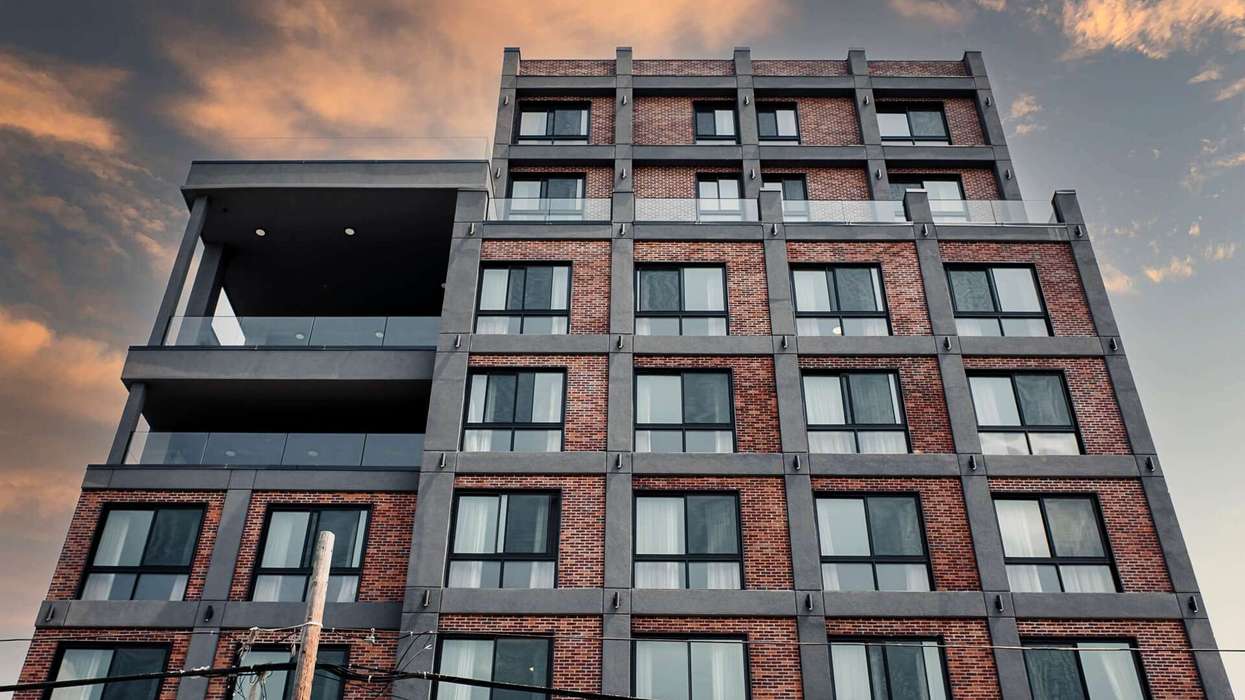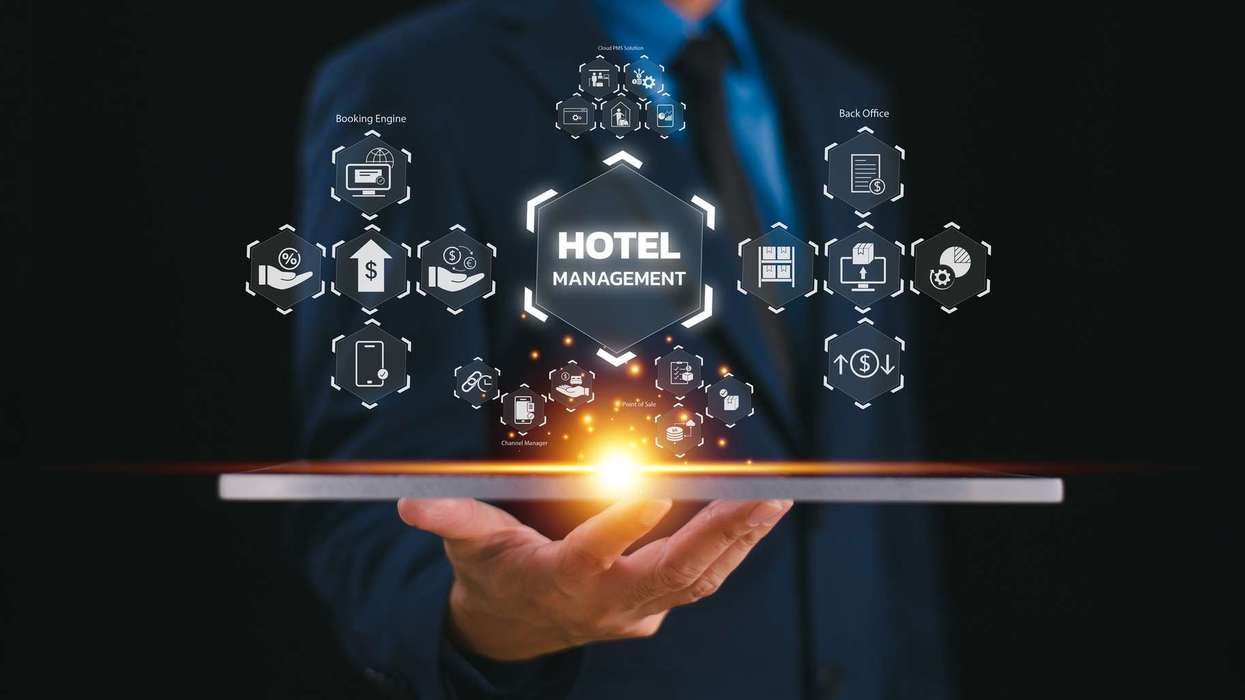ADAM HARRIS, CEO of Cloudbeds, and Jacob Messina, CEO of Stayntouch, discussed the future of property management systems at the Hospitality Show, focusing on their role in connecting human experiences and improving efficiency amid rising costs. The event, produced by Questex and the American Hotel & Lodging Association, recently wrapped up its second annual edition at the Henry B. González Convention Center in San Antonio, Texas.
Panelists Charles Oswald, CEO of Aperture Hotels, and Chris O'Donnell, COO of Atrium Hospitality, with moderator Michael Frenkel, president of Travel Conversations, focused on labor shortages and the need for reliable, intuitive technologies to ensure consistent service.
While technology leaders were optimistic about PMS technology's potential to transform hospitality, Oswald and O'Donnell shifted the focus to the industry’s pressing challenge: labor shortages on both sides of the front desk. They stressed that the most valuable technologies today are reliable and intuitive, placing the responsibility on tech leaders to ensure consistent service.
Improving operational efficiency
When asked how PMS providers help hoteliers control costs, Harris cited data fragmentation as a key issue.
“Most hotels use 20 different systems, creating disconnected data that harms efficiency and revenue,” he said. “This fragmentation complicates staff training, system upgrades, and impacts the bottom line.”
Harris argued that integrated platforms like Cloudbeds transform operations by using unified data and AI to turn interactions into sales opportunities.
“Front desk staff can act as personalized sales reps, identifying upsell opportunities in real time,” he said. “It’s not about cutting costs, but creating smarter operations that enhance the guest experience and profitability.”
Messina agreed, stressing the need for efficient solutions amid rising operational costs.
“Unlike legacy systems that drain IT budgets with outdated infrastructure, our cloud-based platform eliminates costly hardware and includes automatic updates at no extra charge,” he said. “This helps hotels cut costs where it matters most.”
He highlighted Stayntouch’s open-API architecture, enabling seamless integration with systems that support hotel growth strategies. With hospitality labor turnover reaching 75 percent, training and retention costs are a major concern.
“Our intuitive PMS trains staff in just two days, not weeks or months, simplifying hiring from diverse talent pools and allowing a focus on guest service,” he said.
Addressing labor shortages
Messina pointed to labor shortages and the need for seamless guest experiences as key challenges for hoteliers.
“Our cloud-based PMS and automation tools reduce busywork and enable staff-free guest interactions,” he said. “Automation can save up to 69 percent of employee time by handling repetitive tasks like data entry and credit card processing.”
He also addressed “swivel chair systems,” where employees manually transfer data between systems.
“With over 1,200 integrations, we reduce busywork and free up staff to focus on guest service,” Messina explained. “Our guest-facing kiosks enable quick, 30-second check-ins with no staff required, ideal for extended-stay properties and aparthotels.”
Many hoteliers hesitate to replace their core PMS due to concerns about complexity and implementation time.
“Our multi-property management system streamlines this process. Hotels using our templates see a 70 percent reduction in the time it takes to go live with new properties,” Messina said. “From there, they can manage rates and administration from a single location, ensuring consistency.”
Connecting human experiences with data
Harris reinforced that data is more than just numbers—it's about human experiences.
“Fragmented data leads to poor guest experiences because each data point reflects a guest’s journey, preferences, and expectations,” he said. “A modern PMS is about connecting human experiences, not just technology.”
He explained that unifying systems allows hotels to turn data into meaningful insights, enabling personalized, empathetic guest experiences.
“When a guest checks in, their data tells a story. With integrated systems, hotels can tailor every interaction,” Harris said.
The role of integrations
Both Messina and Harris emphasized the importance of flexibility in hotel technology. Messina highlighted Stayntouch’s open-API platform, offering over 1,200 integrations to help hotels customize their tech stack.
“Hoteliers should have the freedom to choose the solutions that best fit their business,” he said.
Harris echoed this, emphasizing that Cloudbeds builds systems designed to work together intelligently.
“Open APIs aren’t just a checkbox for us—they’re a commitment to creating responsive systems that enhance the guest experience,” he said. “The future of hospitality technology isn’t about how many systems you can connect, but how well they work together to create seamless, friction-free experiences that save time and increase revenue.”
The conversation highlighted that while technology evolves, its true value lies in simplifying operations, enhancing guest experiences, and helping hotels navigate today’s dynamic hospitality landscape.
The Hospitality Show 2024 saw 4,800 attendees and 460 exhibitors, a 26 percent increase in attendance and a 43 percent rise in vendor participation. The 2025 edition will be held Oct. 26–28 at the Denver Convention Center.






